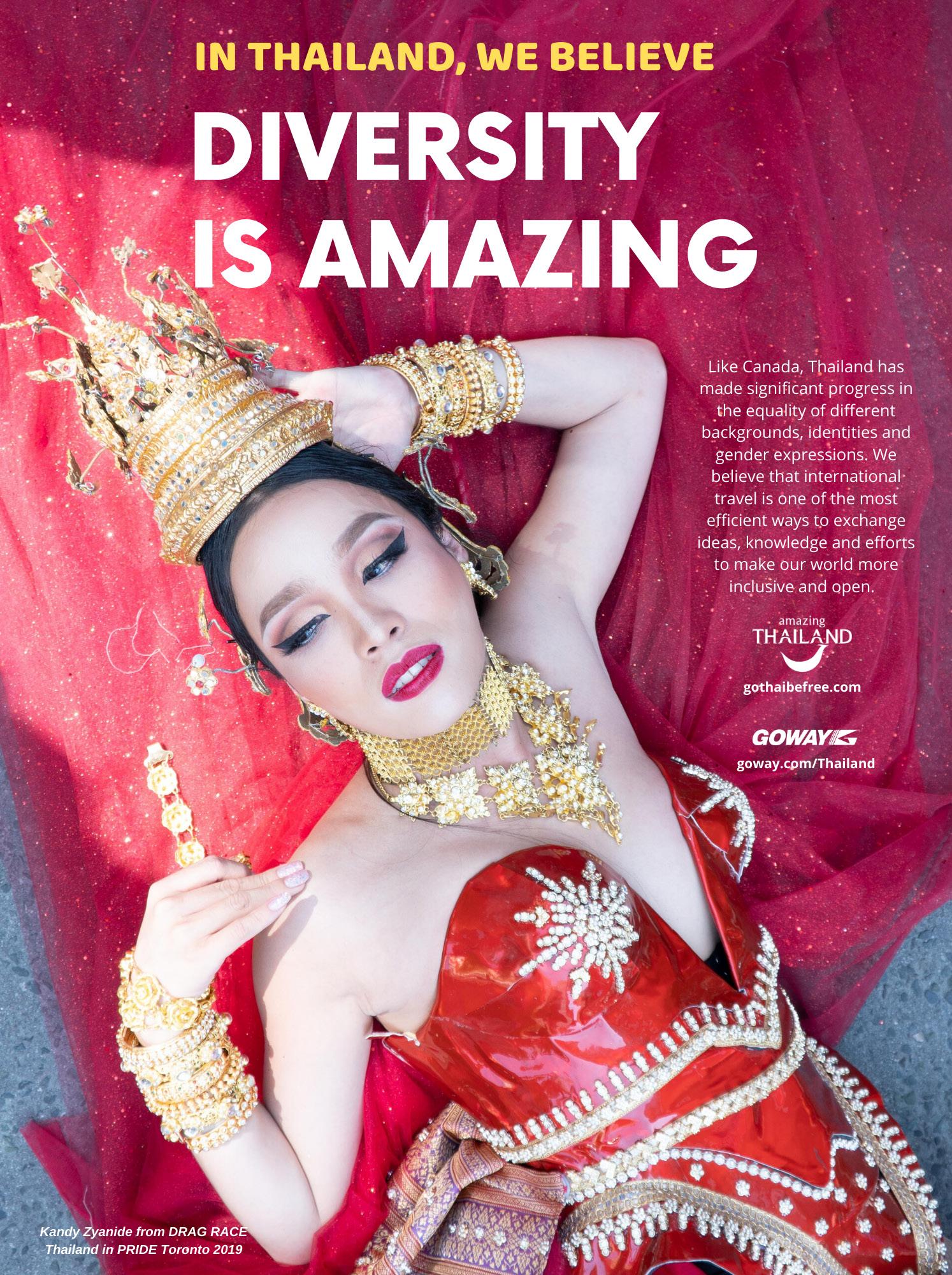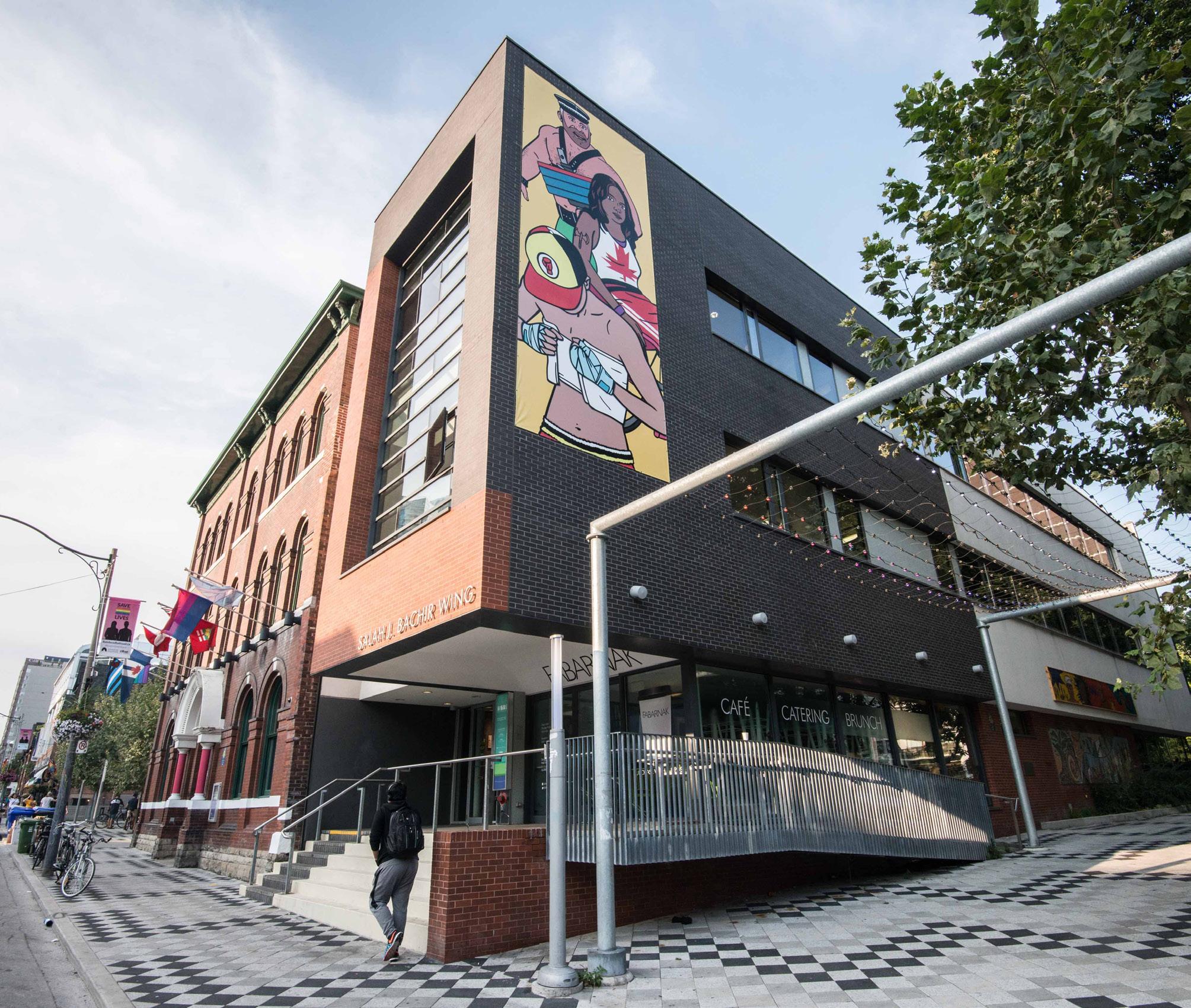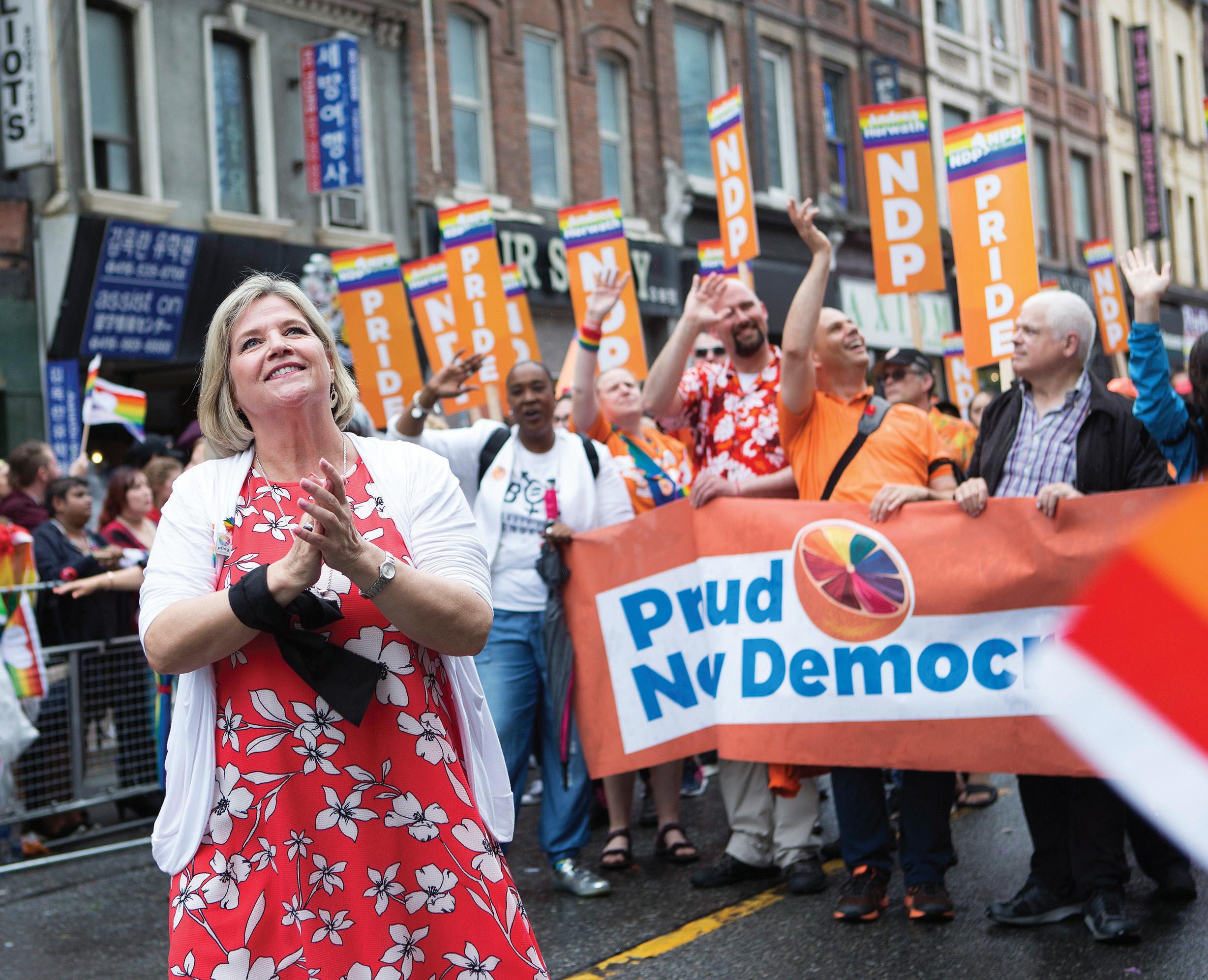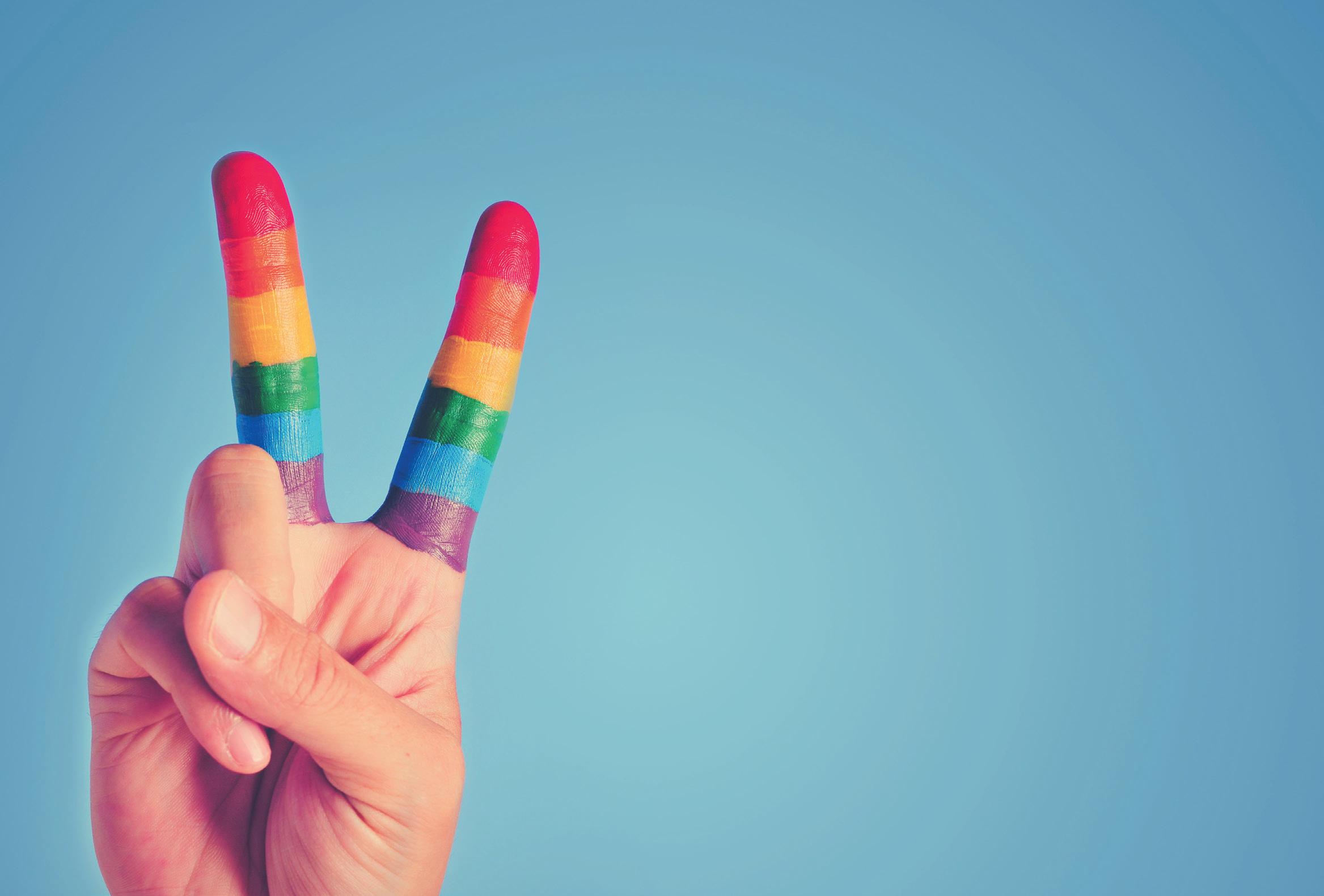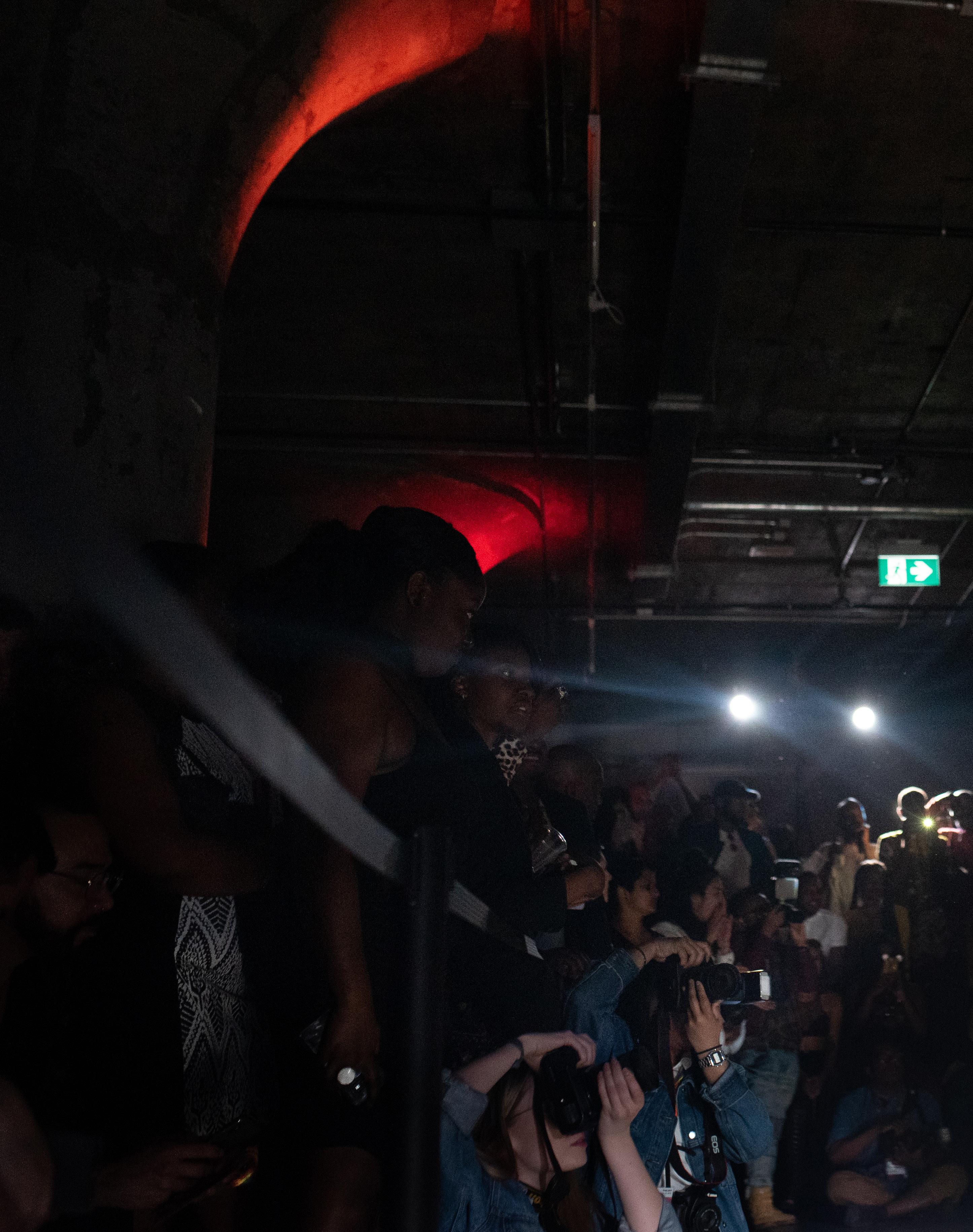CORPORATE PRIDE
CORPORATIONS BELONG IN PRIDE Clearing up some misconceptions about the role of corporations in Pride By Adam Zivo
JULY / AUGUST 2020
There’s no shortage of controversy about the role of corporations in Pride parades. Many believe that corporate involvement is necessarily exploitative; that it signifies nothing more than clever marketing, an attempt to dupe a community into buying products without offering real support for their rights. Associated with that belief is the idea that corporate involvement ultimately dilutes Pride’s politics and, in this way, turns Pride away from its political origins. There’s some legitimacy to these views, but on the whole, critics of corporate involvement in Pride tend to have serious misconceptions about how the entire process works and, above that, take a narrow view of how LGBTQ+ advocacy operates. It’s something I’ve observed in my experiences as an LGBTQ+ activist. I founded an LGBTQ+ advocacy campaign, LoveisLoveisLove, which I’ve managed for a few years now. This campaign has produced several major installations focusing on broadening the base of support for LGBTQ+ rights through art and education, and I’m proud of what we’ve accomplished. It all cost money, though, and so I familiarized myself with the back-end of rainbow capitalism. My views on rainbow capitalism are rooted in those experiences.
30
IN MAGAZINE
The points I bring up here aren’t completely exhaustive of all of the ethical and political issues entangled in the corporatization of Pride, because that kind of essay could go on for a very long time. However, I hope there’s enough here for people to reconsider popular narratives and catch onto some of the nuances those narratives miss. The reality of corporate involvement A misconception about corporate involvement in Pride is that it’s an invasion of outsiders into the LGBTQ+ community. In reality, rainbow capitalism is not spearheaded by boardrooms of old, straight executives conspiring together to exploit the gay dollar. For the most part, Pride initiatives are spearheaded by LGBTQ+ employees, who leverage their deep connections with the community to attempt, as best they can, to create programming that’s relevant to it. If, for whatever reason, LGBTQ+ employees are not able to provide leadership, then companies usually ask trusted LGBTQ+ community members to vet the company’s ideas. As a result, corporate Pride programming is, more often than not, created by community members for community members.


